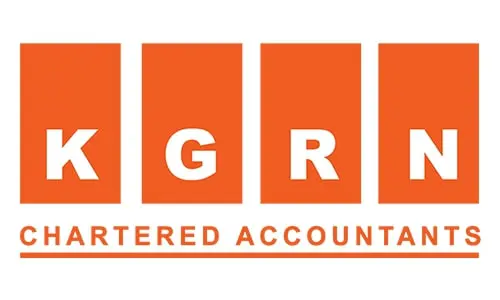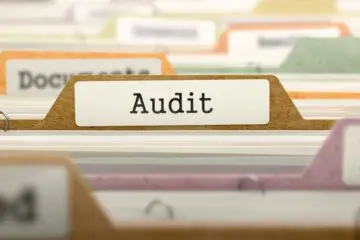The proper functioning of any company or business requires it to maintain appropriate financial records and documentation. Various governments around the world require agencies and companies to submit their documents from time to time. Such a recording system enables both the companies and the government to ensure that there are no discrepancies in the company’s financial records. A statutory audit helps to ensure complete compliance. These serve as an essential and primary audit service. Hence, several financial services companies offer services related to statutory audits.
Audit firms in DIFC and other associated chartered accountants will gladly handle such matters for you and your company. But before handing such work over to audit firms in Abu Dhabi, or top audit firms in Dubai, you must be clear about what the process entails. So, here’s a look at everything you need to know regarding statutory audits.
What is a Statutory Audit?
A statutory audit is an audit or review that is legally required as a part of a government’s financial compliance measures. It requires a certified professional or associated chartered accountant to review and analyze the financial records of the company involved. It is done with an intent to go through, review, verify, and correct the financial statements of either companies or governments. Audits are periodically done to ensure that the organization, company, entity, or individual is maintaining all required financial compliances.
Typically, during a statutory audit, the auditor officially inspects and verifies the organization’s financial records and account books. It is done to ensure that the company or entity is working as per the rules defined in a statute. It also verifies that all the facts they represent concerning their finance are true and fair. At KGRN, we bring together the best auditors in the UAE to provide you with the best statutory audit service in the UAE.
For enquires call @ +971 45 570 204 / Email Us : [email protected]
Why is a Statutory Audit Important?
A statutory audit is done to ensure that an organization is working as per the economic rules laid down by a particular government. It determines whether the entity is providing and presenting fair and true values with regards to their financial position. All financial statements, such as balance sheets, profit, and loss statements and account books, are inspected to ensure that the organization is maintaining financial accuracy and transparency.
Who Needs To Do Periodic Statutory Audits?
As per Economic Substance Rules, all entities falling in Free Zones must submit their audits and ensure compliance with the requirements of the law. Furthermore, as the name suggests, such audits are compulsory for companies as per law. Therefore, all Private and Public Limited Companies, registered under the Companies Act, must conduct statutory audits from time to time. However, as per the Act, only large companies need to perform such an audit on an annual basis.
For instance, companies whose annual turnover exceeds INR 40 lakhs in a fiscal year must compulsorily conduct a statutory audit. If a company’s contribution goes beyond INR 25 Lakhs in a year, it must submit records of the statutory audit. However, almost all Private and Public Limited Companies end up doing such an audit to make sure that they don’t run into legal trouble later.
Most organisations nowadays rely on statutory audits to help them appear more credible and trustworthy. It also helps them grow and expand by ensuring that they follow all government regulations. Such an audit eliminates the possibility of corruption because it allows for an audit without the participation of top-level management.
Statutory auditing is very important in the UAE, where there are strict laws regarding auditing, such as the Economic Substance Rules, UAE. Because of organisations such as the SAIF, DIFC, and JAFZA, Dubai has stringent auditing policies that require most companies to undergo statutory auditing once a year. However, this is not a major issue because there are several DIFC-listed auditors who can help you, such as KGRN.
For enquires call @ +971 45 570 204 / Email Us : [email protected]
What is the Economic Substance Law, UAE?
The Economic Substance Law, UAE, is a set of rules implemented in the UAE that revolves around laws regarding the running of commercial establishments. It provides a general framework to businesses and firms operating under the UAE’s taxation system by the EU. The Economic Substance Requirements are required if you are involved with commercial organizations in Dubai, SAIF, DIFC, or JAFZA.
Financial advisory services in UAE, and top audit firms in Dubai all follow the Economic Substance Laws to ensure that they maintain compliance. We, at KGRN, being one of the top audit firms in UAE, are well-versed with the requirements of the Economic Substance Laws and can help guide you to maintain compliance with ease.
What are the Economic Substance Laws with regard to Auditing in UAE?
- General commercial activities must maintain records for the last five years, and file all their reports in the mainland.
- All general tax laws, such as VAT, Excise, and Taxation, apply here.
- A Free Trade Audit is mandatory at the business premises if the firm works in the UAE. If the FTA provided by the organization is found to be suspicious, a re-audit will be issued by the government.
- All the firms must, indeed, follow the requirements and laws laid down by the Economic Substance Law.
- All these regulations involve Dubai, JAFZA, SAIF, DIFC, and every region under the UAE.
For enquires call @ +971 45 570 204 / Email Us : [email protected]
Requirements for a Statutory Audit:
- First and foremost, the auditing service or financial service company must research and become aware of the company and the market it works in.
- Such research helps the auditors understand what statutory audit requirements the organization has.
- Only after knowing this can they move forward and create the right kind of audit report for them.
The auditors must then go through the company’s control environment and gauge its effectiveness to understand whether the records shown are accurate. - They also have to look at regulatory guidelines, frameworks by the government, competitor’s initiatives, and economic trends to understand exactly what the firm needs.
- Once the external environment is studied, the auditing firm must then test the internal controls of the firm. They also have to review and verify that the company conforms to all the statutory guidelines stated by the Economic Substance Law, UAE.
- After this, the financial advisory firm must rank controls and risks depending on the severity of the risks they impose. Depending on loss expectation and control effectiveness, the risks come under three categories. Namely, these are low, medium, and high. They then have to mention corrective measures for medium and high risks to ensure they comply with governmental norms.
- Afterwards, the firm must start verifying the financial documents of the company. Lastly, the associated chartered accountant must issue a final report. Based on the probability of loss, risks are classified as Tier 1, Tier 2, and Tier 3.
For enquires call @ +971 45 570 204 / Email Us : [email protected]
Why Perform a Statutory Audit?
- Firstly, in most cases, the government asks for a statutory audit. Hence, it is a requirement, rather than an option.
- Sometimes, in order to give out financial aid, NBFCs and Banks ask for statutory audits to ensure that the financial position of the company is secure.
- It helps to ensure that the internal controls of the organization are secure and efficient.
- Improves the reputation, credibility, and trustworthiness of the company.
- Several agencies like the DIFC require statutory auditing to be done by recognized, DIFC listed auditors to ensure they get the same benefits.
- Financial aid and benefit schemes offered by the government require companies to showcase their audit reports.
- It makes the company seem more robust and well-oiled.
- It helps prospective clients gauge the stature and efficiency of the company and its operations.
- Helps investors, creditors, and shareholders evaluate the company and its performance.
- Allows avengers an opportunity to gauge and introspect the performance of the company in a particular fiscal year.
- It helps top-level management make strategic decisions regarding the growth, expansion, and improvement of the organization.
- Enables the accounting team to identify weaknesses in the accounting system of the organization and remove all errors.
- It shows critical areas where the company needs to improve, revamp, and work more efficiently to push growth.
- Helps in eliminating the chances and risks involved with poor accounting, fraud, and corruption.
- It provides companies with a higher credit limit, once the records show that the company has a promising fiscal position and future.
- Helps in adding more credibility to insurance claims and loss adjustments.
For enquires call @ +971 45 570 204 / Email Us : [email protected]
Difference between Internal Audit and Statutory Audit
Internal Audit
- The management calls for such audits.
- Such auditors may join a company if they have certain qualifications.
- The risk factor remains as the management has an opportunity to influence such audits.
- The internal auditor does not have to verify and submit a report to the assignee.
Statutory Audit
- The Board of Directors calls for such audits.
- They should meet the qualifications specified in the Companies Act.
- The risk factor goes away as the statutory auditor is an individual apart from the organization.
Common mistakes Made During a statutory audit:
- Poor planning of existing resources
- Hiring inefficient or corrupt auditors
- Not complying with the Companies Act.
- Not taking into consideration the concept of zero-rated.
- Misinterpreting the VAT Legislation
- Not taking into consideration the concept of Input Tax Deduction.
- Issuing of non-compliant invoices
- Unsure regarding how to handle Fixed Asset Management
- Faking In-House Accounting
- Not calculating the annual depreciation.
- Outsourcing of cash flows for their assets
- Restricted usage and approach to venture capitalists
How to Improve the Audit Process?
- Detailed documentation of reports, taxations, and file resources for the past five years should be maintained.
- Physical verification involving record management, maintenance, purchase invoices helps them to achieve a stable running.
- Timely taxation eliminates the excess fees involved.
- Following the accounting standards, accounting procedures, and regulations.
- For asset management, a fixed asset register helps in accounting.
- Lastly, every possible document is available online on request.
For enquires call @ +971 45 570 204 / Email Us : [email protected]
Why Choose KGRN?
A Statutory Audit helps an organization improve its growth and manage its assets carefully without the involvement of internal management. Therefore, the overall process of the Statutory Audit benefits the organization by appointing a statutory auditor to examine its assets. Furthermore, they also go through and analyse tax calculation, income and company revenue, without involving the internal management.
KGRN’s Statutory Audit methods assist an organisation in improving its growth and carefully managing its assets without the involvement of internal management. In addition, the Statutory Audit process benefits the organisation by gathering and analysing all relevant information. As a result, the auditor can express his or her views on the true and fair picture of the company’s financial position as of the balance sheet date. We never fail to disappoint you or your expectations at KGRN.
For enquires call @ +971 45 570 204 / Email Us : [email protected]
Our Services
Top Audit Firms in Dubai, UAE 2023
Accounting and Bookkeeping services in Dubai
Tag: top audit firms dubai, audit firms in dubai list, audit firms hiring in dubai, audit firms in business bay dubai, best audit firms in dubai, ca firms in dubai, audit firms in dubai, audit company in dubai, leading audit firms in dubai, small audit firms in dubai







